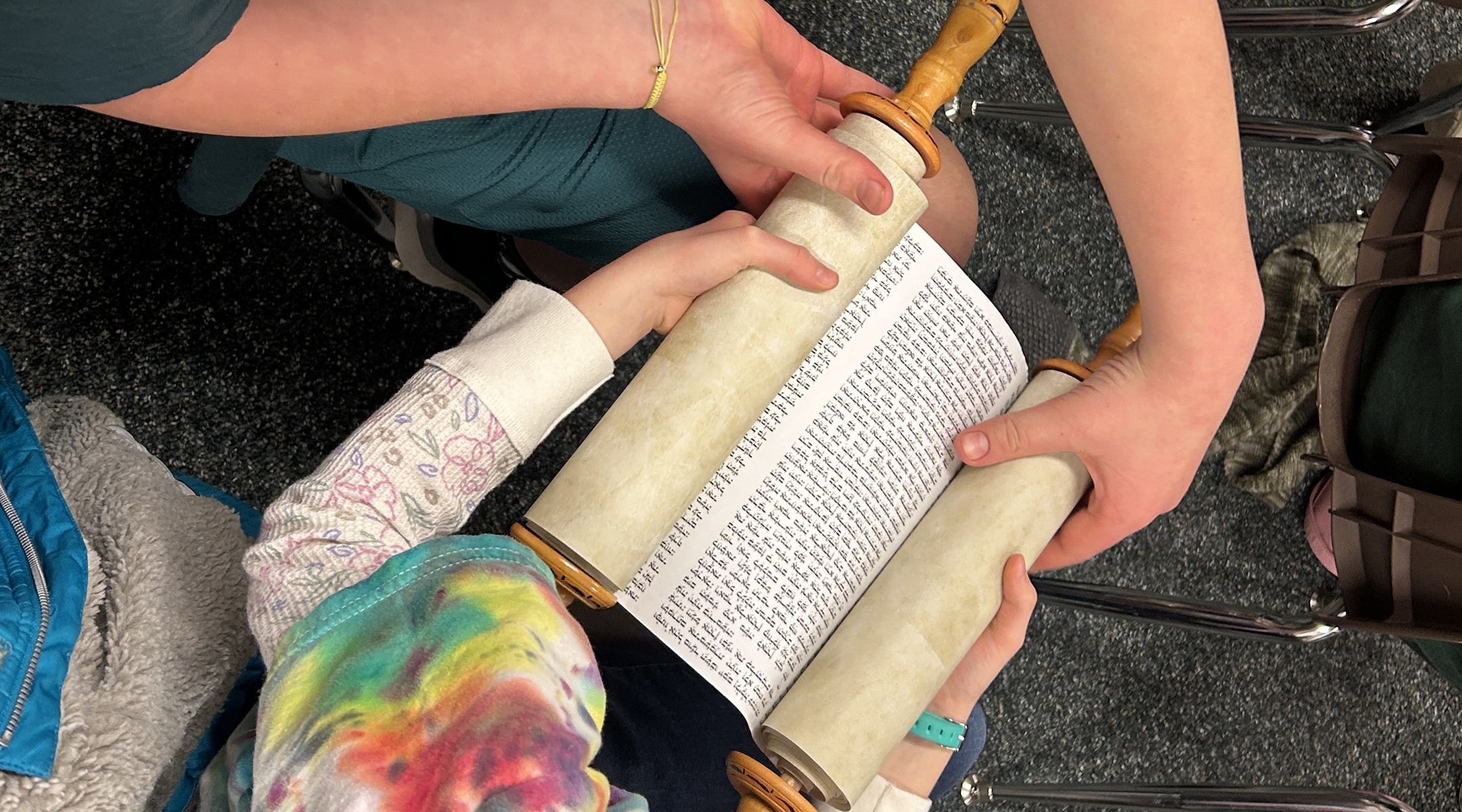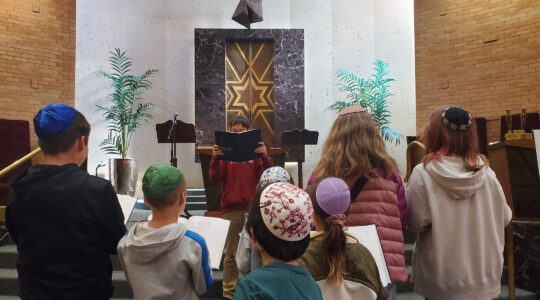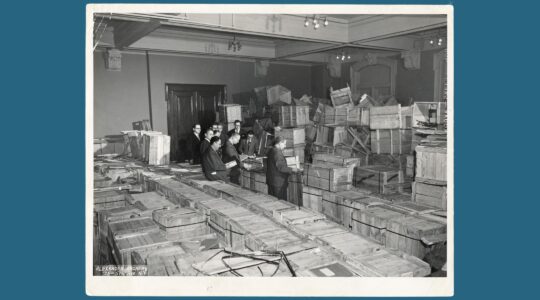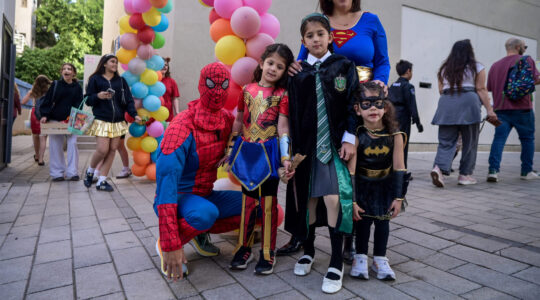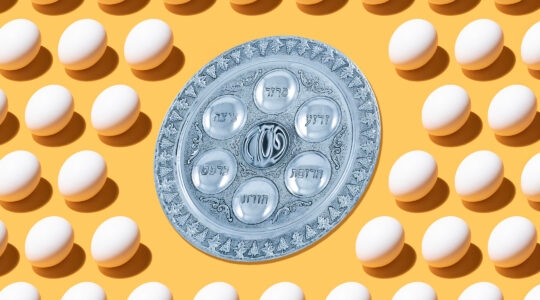This article was produced as part of JTA’s Teen Journalism Fellowship, a program that works with Jewish teens around the world to report on issues that affect their lives.
After a presentation about Judaism for a world religions class at her school last November, Hannah Vinitsky was surprised by the questions from her peers: Where did the Star of David come from? How do Jews think about sins and forgiveness? Does Judaism support same-sex marriage?
“I had an amazing question from one sophomore during my first presentation about what books and resources they should look at to learn more about Jewish life and the Holocaust. My group suggested a few including the ‘Diary of Anne Frank,’” said Vinitsky, a senior at Reservoir High School in Fulton, Maryland.
Vinitsky spoke to her peers as part of a program in her community that connects Jewish teens to their non-Jewish peers in the fight against antisemitism. Maryland’s antisemitism statistics underscore the need for the program: In 2022, Maryland ranked 10th for states with the highest number of antisemitic incidents in the U.S. by the Anti-Defamation League. Just under 4% of the state’s population is Jewish, making it the 5th most Jewish state in the country, including Washington, DC.
Antisemitic attitudes have recurred in the Howard County Public School System for years. Eleventh grade student Addison Burstein at Mount Hebron High School, a public high school in Howard County, Maryland, remembers hearing antisemitic comments from her classmates as far back as first grade.
“I’ve had students tell me that they wish that Hitler had succeeded so they wouldn’t have to deal with me and say that my happiness, my comfort, my opinion doesn’t matter because I’m Jewish,” said Burstein.
To combat stereotyping and other negative attitudes towards Jewish people, the Jewish Federation of Howard County introduced the Student to Student program in the fall of 2023. The program was launched in the wake of Oct. 7 when Jewish students nationwide felt a decreased sense of security correlating to a spike in antisemitism and harsh anti-Israel activism. Originally developed by the St. Louis, Missouri nonprofit Be The Narrative, the initiative trains students representing different branches of Judaism to go into classrooms in schools and church youth groups.
Student presenters are trained by Jewish federation staff on Shabbat rituals, Jewish weddings ceremonies and the Holocaust, among other features of Jewish history and culture. The teen presenters, who are in either the 11th or 12th grade and talk in groups of four, are encouraged to personalize their presentation with their own stories — whether it be antisemitic encounters in school or the experiences of their grandparents during the Holocaust.
Some choose to include an introduction to the Hebrew alphabet, an overview of the Torah and its significance in Jewish life, or an exhibition of items that reflect Jewish culture. One student said in an anonymous survey handed out to audience members, “I appreciated the fact that the presenters physically brought in objects. That helped me understand how they work and what they do to impact Jewish cultures.”
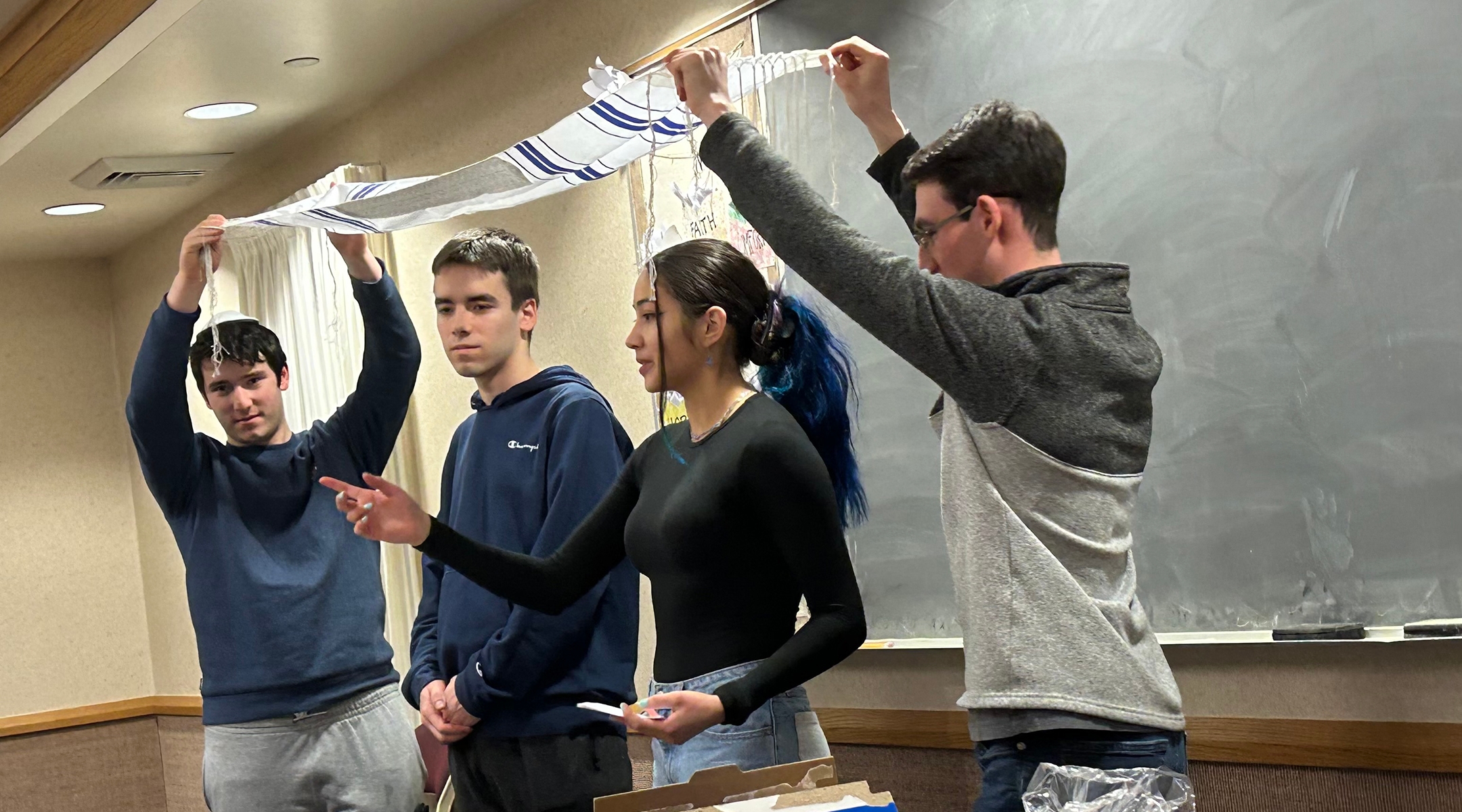
Students demonstrate the chuppah to classmates as part of the Student to Student program launched in the fall of 2023. (Courtesy of the Jewish Federation of Howard County.)
At a recent talk at Lime Kiln Middle School in Fulton, 11th grader Cora Caplan recounted her grandmother’s experience during the Holocaust. Caplan’s grandmother was the only one of her 12 siblings to survive, staying alive by playing piano for concentration camp administration in exchange for extra food.
“It’s a lot different when you’re hearing about Judaism or other religions from a teacher than it is from a peer,” said Joel Frankel, the former director of the Jewish Federation of Howard County, who introduced the program to the county. “Yes, there is an academic component to it in the sense that they are educating, but they’re bringing their own personal sense of identity into the presentations. That is what makes it an especially strong program.”
The organization considers the program a success based on requests for repeat presentations by each site that has worked with the Jewish federation. Neither the organization nor the schools track incidents of antisemitism before and after Student to Student presentations to gauge the program’s influence. One teacher at Ellicott Mills Middle School said that their students walk away from the presentation with greater awareness of the challenges that their Jewish peers face in their daily lives, citing an anonymous survey provided by the Jewish Federation.
“It also opens my mind to the possibility of wanting to celebrate a holiday with them or ask them how they might celebrate something, or if they could tell me more about it,” said Lily Pendleton, a student who attended Student to Student’s first presentation in Howard County in November. “Then, I could just be more open minded towards other people of that religion.”
It was eye-opening for the organizers at the Jewish federation as well. “There was at least one [high school student] at each presentation in the audience that said they had never met a Jewish person, which I did not expect to happen in Howard County,” said Rena Dubin, director of the Student to Student program. In the county, one out of every 17 people is Jewish. “There’s still people who probably met one, but they never talk directly [about their religious identity], and they didn’t know they’re Jewish,” said Dubin.
Though the program is still in its early stages, Student to Student presentations have given a sense of hope to the Jewish presenters. Kylie Stuart, a senior from River Hill High School in Howard County, has visions for the future of education about Judaism in the classroom.
“As this progresses, I hope that it will be more impactful, but there’s only so many classes that we are able to do in the time that we’ve started,” said Stuart. “Hopefully over the next few years the more presentations that we do the more reach that our program will have and the more it will stop the antisemitism seen in schools.”
JTA has documented Jewish history in real-time for over a century. Keep our journalism strong by joining us in supporting independent, award-winning reporting.
